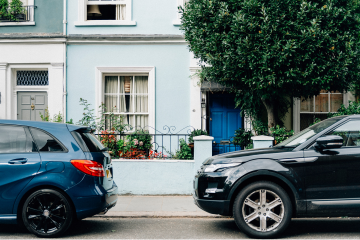Your car's annual mileage is used to work out how much you pay for car insurance. Insurers use it to decide how likely you are to make a claim. We'll show you how to work out your annual mileage, as well as what options might be available for low-mileage drivers. So whether you're always behind the wheel, or you only use it for your weekly shopping trip, we've got you covered.
How can I work out my annual mileage?
To work out your annual mileage you'll need to estimate how many miles you drive in a typical week. This includes your commute, social trips, and any errands.
Once you've got a rough idea, you can multiply your weekly mileage by 52 to get your yearly estimate. It's a good idea to add on some extra miles for any extra trips you might make.
This could be holidays, trips to visit distant family, or any unexpected errands. Working out your annual mileage is just an estimate.
But remember to keep an eye on your mileage throughout the year. If you're driving a lot more, or a lot less, let your insurer know.
What's the average mileage per year?
In the UK, the average car drives between 5,000 and 8,000 miles per year. This number varies depending on age, occupation, lifestyle, and fuel type.
For those in the 5,001- 10,000 total annual mileage group, the average premium was £876.84*.
According to GOV.UK, 82% of people reported to have used a private car at least once a week in 2023.
*Average quote shown for comprehensive policies, Nov 23 - Nov 24, Confused.com data.
What happens if I go over my annual mileage on my car insurance policy?
You should let your insurer know if you notice you're going over your annual mileage. If you don't tell your insurer you can risk invalidating your insurance policy.
Car insurance companies will only cover you for the mileage you've estimated. If you make a claim after going over the mileage, you might not get a payout. Or you may get less than you thought.
Why is annual mileage important on my car insurance policy?
Annual mileage is an important factor when calculating your car insurance cost. The amount you use your car can help insurers weigh up the risk of covering you.
The more you drive, the more likely you are to be in an accident or make a claim on your car insurance.
If you're someone who uses their car a lot, you might pay higher premiums. But if you don't drive regularly, or don't make long trips, you could pay a lot less.
Retired drivers are more likely to have low car insurance costs because they're not commuting to and from work. Compare car insurance quotes.
Compare car insurance quotes
Car insurance policies for low annual mileage
If you have low annual mileage, it might be worth looking into some other options:
-
Pay-as-you-go: Also known as 'pay per mile' car insurance. This is a type insurance that charges you based on the number of miles you drive. You pay a base rate for your cover, either annually or monthly.
-
This rate is usually cheaper than buying standard car insurance. You'll get a monitoring device either fitted to your car, or downloaded to your phone. This will track how many miles you drive each month, and you'll pay at a pre-agreed rate for each one.
-
Classic car: This policy is specifically designed for classic cars. It's usually cheaper than standard insurance because people tend to drive classic cars less. Insurers also recognise that they tend to be older, with more driving experience too.
-
Temporary: Temporary insurance is a flexible policy, suitable for a variety of needs. You can buy cover from 1 hour to 28 days, making it a great option for short-term use. Temporary insurance can be a great idea if you want to borrow a friend's car, or take turns driving on a long journey.
What’s considered low mileage for car insurance?
You may have low mileage if you drive less than the national average. Each insurer has their own definition of low mileage though, so it can depend who you buy cover from.
Some insurers consider driving under 7,500 miles per year to be low mileage. Low mileage car insurance is typically cheaper as you're less likely to have an accident and make a claim.







